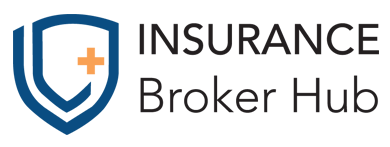Buying health insurance represents one of the most important personal finance decisions you can ever expect to make. Without the proper amount of health insurance coverage, you might find yourself falling into a deep financial hole as the result of rapidly rising medical expenses. On the other hand, you do not want to purchase a policy that busts the monthly family budget because of expensive premiums.
Another issue associated with purchasing a health insurance policy concerns the numerous terms you need to understand before you sign on the dotted line. For example, do you know the meaning of health insurance terms such as deductible, coinsurance, and copayment? These are just three terms that you need to know before you sign up for the right health insurance policy. Another term to know is called a health savings account (HSA).
In a previous post, we helped readers understand the basics of health savings accounts, as well as help them determine whether they should consider an HSA as part of their health insurance policies. For this post, we present a quick review of what constitutes a health savings account, before diving into how you can maximize the benefits of an HSA.
What is a Health Savings Account?
A health savings account is like a rainy-day fund for paying healthcare expenses. You contribute money into an account following a schedule, and you access the money to pay for qualifying medical care costs. To become eligible for an HSA, you must purchase a high-deductible health plan (HDHP), which is not a health insurance plan that matches the healthcare needs of everyone. For example, an HDHP is a policy to consider for younger workers who have received a clean bill of health. For 2023, an HDHP requires a minimum deductible of $1,500 for individuals and $3,000 for families.
Opening a health savings account delivers three significant benefits when it comes to federal income taxes. First, contributions to an HSA are considered tax deductible without you having to itemize deductions. Second, any money in an HSA that increases in value is tax-deferred. Finally, any distributions made for medical care remain tax-free.
The most effective way to maximize the tax benefits of a health savings account involves contributing the maximum amount allowed according to federal regulations. If you have money left over after 12 months, you can roll over the remaining cash or invest some of it to generate tax-free income as well.
How Do I Maximize the Benefits of My HSA?
Despite the option to invest extra HSA cash into securities such as stocks and bonds, a survey released by the Plan Sponsor Council of America showed only 20 percent of employees contributing to a health savings account took advantage of the investment option. If you can avoid spending your HSA contributions on healthcare expenses, you should review the investment options offered by your employer, or if you contribute to a health savings account outside of your job, review the investment options offered under a typical HSA.
For instance, if you have a minimum balance in a health savings account of $2,100, you might qualify to invest a percentage of the balance into a mutual fund that matches your risk tolerance.
Max Out Your Contribution Limits
If you remain healthy, the more money you contribute to a health savings account, the more flexibility you have with investing the extra cash. If you have not reached your HSA maximum contribution limit by the end of the calendar year, you can utilize the “last month rule,” which allows you to contribute enough money to your health savings account on the first day of December to reach your full annual maximum limit. If you are at least 55 years old, you can contribute a catch-up amount of no more than $1,000 per year until your contributions put you at the maximum amount allowed.
Do Not Forget About Healthcare-Related Travel Expenses
Many policyholders do not know this, but they can use the money contributed to a health savings account to pay for healthcare-related travel expenses. For example, let’s say you live in Carbondale, Illinois and you need a type of surgery that requires a surgical specialist from Barnes-Jewish Hospital in St. Louis. You can spend come of your HSA contributions on travel-related expenses such as gas, parking, and general wear and tear of your vehicle.
Just remember to save every receipt associated with healthcare-related travel expenses.
Use Your Contributions for Family Planning Coverage
Money saved in an HSA can go towards paying for family planning expenses beyond common expenses such as examinations, and prescription medications. For instance, you might qualify to spend health savings account money on family planning expenses like childbirth classes and medically-approved doulas. For postpartum costs, you might be eligible to spend HSA contributions on products that deliver breastfeeding support.
Dip Into Your Health Savings Account for Dental, Vision, and Prescription Medication Costs
Contributing to a health savings account is much more than a rainy day fund for medical expenses. It also allows you to pay for other types of healthcare costs, such as the costs associated with dental and vision care, as well as prescription medications. Since some HDHPs do not cover these healthcare costs, contributing to a health savings account ensures you remain financially healthy if you need to pay for dental, vision, and/or prescription medication costs. In addition, your HSA might help you pay for other types of eligible expenses.
Learn More About HSAs With Insurance Broker Hub
Like anything regarding health insurance, there is a whole lot more nuance that you should know before diving into an HSA. The best way to find out whether a plan is right for you? Speak with a broker.
If you’re looking for options, freedom, and flexibility as you approach this critical time, you’re not alone. Insurance Broker Hub is here to help you find the right plan at the right price, eliminating the confusion and work that goes into securing health insurance. With no broker fees or increased premiums, Insurance Broker Hub will connect you with a broker ready to deliver for your needs.
We are an independent national broker network with access to every carrier in the industry. Some of our common carriers include AARP, Aetna, Ambetter, Blue Cross Blue Shield, Caresource, Cigna, Humana, Molina Healthcare, Oscar, Securian, Transamerica, UnitedHealthcare and more. Get to know more about how we work and request a free health insurance quote here.


